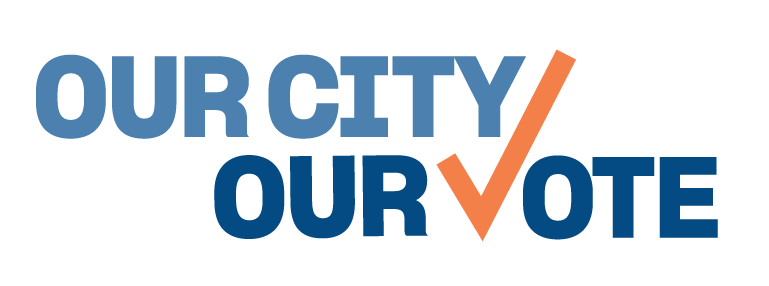INTRO 1867
ABOUT INTRO 1867
Our City, Our Vote supports legislation that expands democracy in New York City so green card holders and those authorized to work in the United States can vote in elections for city-level offices as long as they have been a resident of New York City for at least 30 days and are otherwise qualified to register and vote under New York State election law.
FREQUENTLY ASKED QUESTIONS
What does this legislation do?
Intro 1867 expands voting rights so legal permanent residents and those with work authorizations can vote in municipal elections for New York City offices, including the City Council, Mayor, Public Advocate, and Comptroller, as well as ballot initiatives.
What doesn’t it do?
Apply to state or federal elections.
How many people in NYC would become eligible voters if this were law?
Approximately 900,000.
Why should they be allowed vote?
We live in a democracy and yet nearly one million New Yorkers can’t vote in local elections. These are residents of our city who live here, work here, go to school here, raise families here, and pay taxes here. They deserve to have a say in the direction of our city.
Why they can’t just become citizens if they want to vote?
The overall naturalization process can take 6-8 years to complete. One generally must have a green card for at least five years and pay nearly a thousand dollars in fees. The process is so complicated that people often have to hire and pay for lawyers to help navigate it.
And it’s only getting longer. The average time just to process an application has doubled since 2014.
Is this legislation legal?
Yes. No federal or state law explicitly prohibits NYC from expanding the right to vote in local elections.
Has this existed before?
Yes. For more than 40 years, until school boards were disbanded in 2003, NYC allowed non-citizens to vote in school board elections. Nationally, for the first 150 years of U.S. history, non-citizen voting was common. It was only at the turn of the 20th century, with the large influx of immigrants and rise in nativist sentiments, that immigrant voting rights were gradually repealed.
Other towns and cities across the country have restored these rights, including 10 towns in Maryland, and San Francisco for school board elections. Five towns in Massachusetts have also passed resolutions in support of immigrant voting rights. Globally, more than 45 countries allow immigrants to vote.
Is it the right time to push for something like this?
Yes! New York City should be encouraging greater civic engagement and mobilization of communities to advocate for good public policies that invest in and enhance our neighborhoods. Expanding the right to vote in city elections provides more New Yorkers the opportunity to have a say on issues that affect them.
How would the Board of Elections (BOE) implement this?
A separate voter registration form would be created for legal permanent residents and those with work authorization to submit. Then, when at the polls, those municipal voters would be given a ballot that only has elections for New York City offices on it, but not federal or state.
Isn’t that complicated to create and have poll workers implement?
No. With the implementation of Ranked Choice Voting, which also only applies to elections for New York City offices, the BOE already has to create a separate ballot. And the legislation has built-in training for poll workers so they know to ensure that everyone is receiving the right ballot.
How do you stop people from lying on the forms and trying to vote in federal or state elections?
Voter fraud is rare, and most instances are not actually fraud, but the result of poll worker error. There just isn’t any evidence that it’s a real problem. On top of that, legal permanent residents and those with work authorization will likely be very careful when filling out government forms so they aren’t opening themselves up to legal problems. This law isn’t making it easier to get your voter registration application processed. The process is the same, but more New Yorkers would be eligible to participate in it.
What if someone fills out the wrong form by accident or mistakenly votes in the wrong election?
Because of how serious the legal consequences can be, individuals will likely be very careful they’re doing everything correctly when filling out municipal voting forms. But, the legislation has safeguards including robust community education, training for poll workers and agency staff who may be handing out voter registration forms, and the ability of a voter to opt out of registering if they did so by mistake.
The current voter registration form has three places where it says you must a citizen to complete this form. But even if someone missed all three of those, the legislation creates a process that when BOE mails you a notice that they processed your registration form, that notice again says you must be a citizen to vote in federal or state elections and, if you’re not, or you filled out the wrong form, you can mail back the notice and be removed from the voter rolls.

